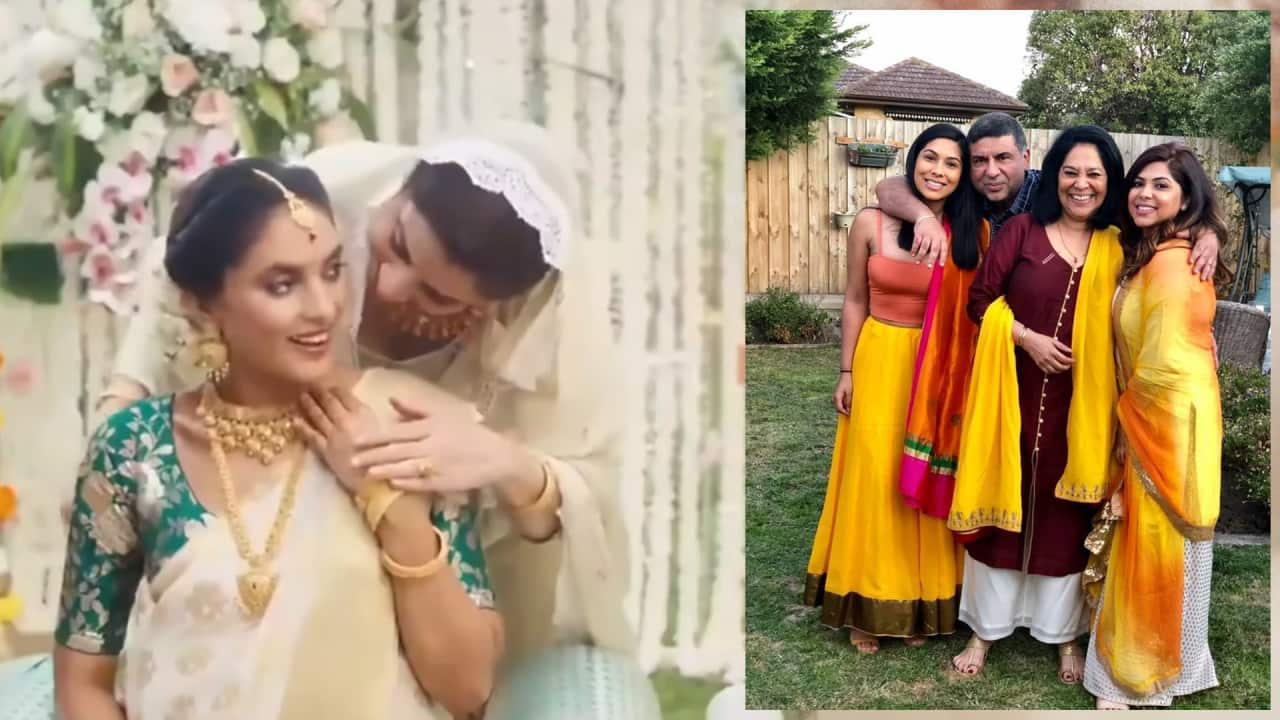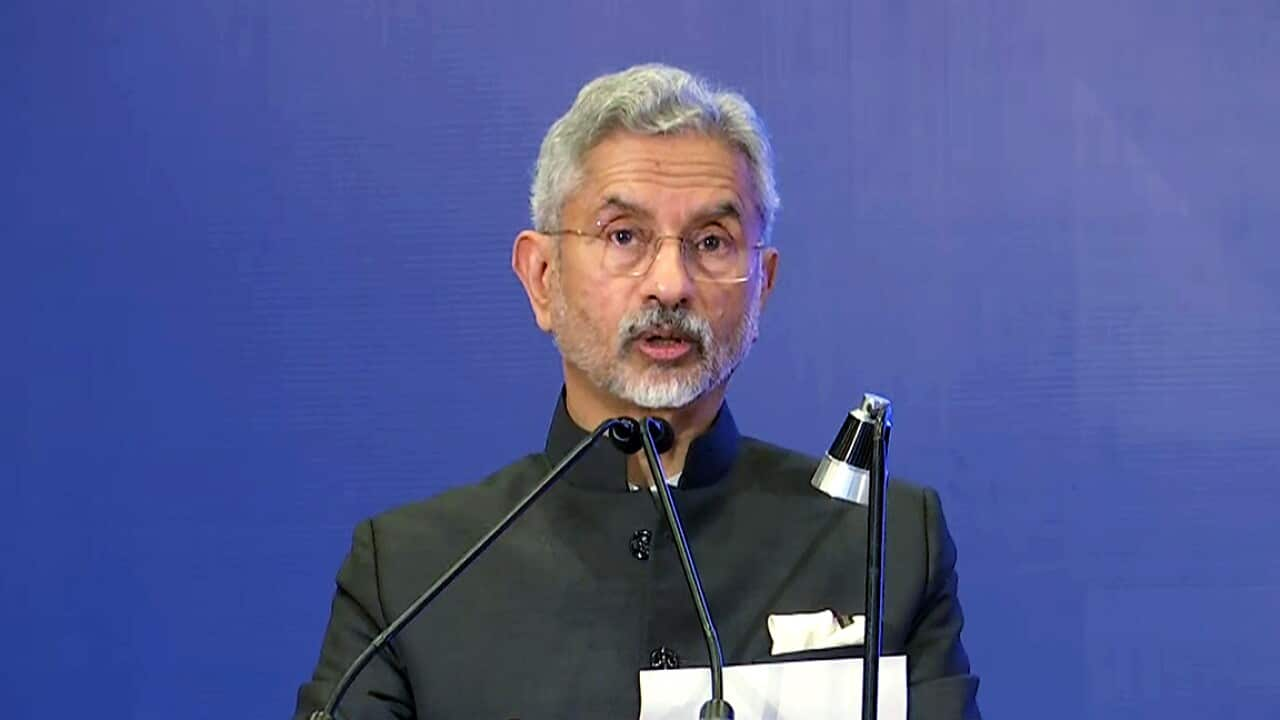A major Indian jewellery company has been forced to pull an advertisement from all of its platforms following calls for a boycott of the company.
The controversy erupted after its latest TV commercial portraying an interfaith marriage between a Hindu woman and her Muslim husband.
Highlights:
- Indian Jewellery brand Tanishq had to take its advertisement down after outrage on social media.
- #BoycottTanishq was trending on social media.
- Saleha Singh, who married out of her religion, like her mother finds this controversy puzzling.
It depicts the Muslim family of a man, married to a Hindu girl, celebrating a Hindu godh-bharai (baby shower) ceremony. "Only for her, they go out of their way to celebrate an occasion that they usually don’t. A beautiful confluence of two different religions, traditions, cultures,” read the description on the accompanying YouTube video.
The message in the voice over is that if united, people can achieve anything.
However, a torrent of criticism called the ad out for 'promoting' so-called 'love jihad' - an alleged activity by which Muslim men reportedly target young Hindu girls for conversion to Islam by feigning love.
#BoycottTanishq started trending on social media, and the company pulled the ad, "keeping in mind the hurt sentiments and well-being of our employees, partners and store staff”.
'A sign of our stricken times'
Many in India criticised the company for pulling the ad. An editorial in was scathing: "The intolerant response... is a sign of our stricken times when all human interactions are measured in terms of separateness and exclusion rather than of amity and unity."
"What are things coming to, if a feel-good ad promoting communal harmony, essential for national integration and hence welcome, brings out the shock troops of hatred and fear," stated an article in . Some couples of inter-faith marriage here in Australia find the controversy puzzling.
Some couples of inter-faith marriage here in Australia find the controversy puzzling.

'Tanishq' jewellery showroom in a shopping arcade in New Delhi on October 14, 2020. Source: Getty
Melbourne-based Saleha Singh is the daughter of a Hindu mother and Muslim father. She says she cringes while watching Indian news reports of the controversy.
"I don't understand this Hindu-Muslim-Sikh divide that we constantly talk about because religion has so little part to play in our day to day life," says Saleha Singh, who is a Muslim, married to a Sikh. Saleha and her husband Paramjit have been together since 1986.
Saleha and her husband Paramjit have been together since 1986.

Paramjit and Saleha Singh with their daughters Source: Supplied by Saleha Singh
"I met Param when he was 19, and I was 21. We remained friends for years, and then in 1986 we moved in together," she says - a bold step considering that living together often remains a controversial subject in Indian society. They faced some resistance from the families but say the issues resolved when both parents came to live with them for a while.
They faced some resistance from the families but say the issues resolved when both parents came to live with them for a while.

Saleha Singh with her parents Source: Supplied by Saleha Singh
"I have travelled and studied in about 20 different cities in India," says Param, "so I have a very broad understanding of all the rituals and what is unique about each state. So I've had a fairly diverse upbringing.
"My mother was born in Burma (Myanmar), and my father was born in Peshawar (Pakistan). So, yeah, it's a fairly diverse background."
Saleha says her father and her maternal uncle used to study together.
"That is how my parents met," she says. "My mother comes from a very, very typical Hindu Brahmin (upper cast Hindu) household. And it was a huge issue when they married. I am sure it was difficult, but they managed. They remained married until my mother passed away in 2016."

Source: Supplied by Saleha Singh
Celebrating festivals of different religions
Saleha grew up celebrating festivals of different religions.
"As children, we celebrated Pooja and Eid. My brother and I used to go to our grandmother's house for Durga Pooja (Bangla Hindu festival). And, we used to celebrate Eid with my father's extended family. We used to go to Eidgah. My maternal uncles live in England. They used to visit us during Christmas, and we used to celebrate Christmas with their families. This has been my childhood."
She follows the same traditions at her home in Australia, where the family celebrates all the festivals.
She says she felt hurt when the Tanishq pulled the advertisement after the 'Love Jihad' uproar.
"People are disturbed because the girl is Hindu and the boy is Muslim and why not the other way round. So, I am a Muslim girl. I am ready to do such advertisement. Will that be okay?" asks Ms Singh.

Source: Supplied by Saleha Singh
Saleha says she never heard the term in her home.
"I never heard the term love jihad in my house, but I have read a lot about it in Indian media," says Ms Singh.
"It was just two people falling in love, and I think it was lots of friendship, understanding. So, I don't understand all this love jihad." Paramjit Singh, who married a Muslim girl despite his grandmother's objection is more surprised than hurt over the controversy.
Paramjit Singh, who married a Muslim girl despite his grandmother's objection is more surprised than hurt over the controversy.

Saleha Singh (second from left) with her family. Source: Supplied by Saleha Singh
"Surprised because, all these remarks and comments I read, I don't think they themselves believe in it. I think it is for appeasement, for getting headlines etc. I refuse to believe that a human being can genuinely feel like this. But that is just my opinion," says Mr Singh who observed fasting during Ramadan whenever his wife was fasting and cooked for all the friends during Eid and Durga Pooja.




